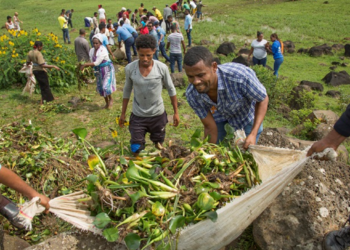New strategies for a more sustainable European aquaculture – The European Commission continues to reinforce its commitment to sustainable aquaculture, and does so by publishing three new documents to address the sector’s most pressing challenges, focusing on crucial topics such as access to space and water, climate change adaptation and energy transition.
Access to space and water: the heart of inland aquaculture
Access to key resources such as space and water is one of the most complex challenges for freshwater and land-based aquaculture. This document complements the guidelines published in April 2024, offering a clear framework on how to plan and optimise the use of natural resources. A special focus is devoted to sustainable coexistence with other economic activities, which is crucial to ensure the harmonious development of the sector.
Adaptation to climate change
Climate change is already deeply affecting the aquaculture sector in Europe. Rising temperatures, changes in water cycles and new diseases are just some of the emerging threats. The second paper focuses on adaptation measures that Member States and operators can take, presenting examples of good practice and tested solutions. From contingency planning to the choice of resistant species, the document offers practical tools to tackle climate challenges.
Energy transition: towards decarbonised aquaculture
With an eye on energy sustainability, the third paper proposes strategies to reduce the environmental impact of aquaculture. Innovative solutions, such as the adoption of renewable energy and optimising energy efficiency, are outlined. It also highlights EU-funded projects that are already leading the way in the sector, demonstrating that a transition to decarbonisation is not only possible, but also cost-effective.
Strategic vision
These documents reinforce the EU’s strategic guidelines for a more competitive and sustainable aquaculture, developed in collaboration with producers, research experts and national authorities. The Commission is already working on further publications on key issues such as fish welfare and the environmental performance of aquaculture facilities.
In addition, online training courses and e-learning modules dedicated to Member State authorities will be offered to ensure widespread dissemination of knowledge and good practices.
Aquaculture is set to become a pillar of European food sustainability, and the EU’s commitment demonstrates a clear vision towards a greener future. Investing in space, climate and energy is not only a necessity, but also an opportunity to consolidate European leadership in a constantly evolving sector.
New strategies for a more sustainable European aquaculture









